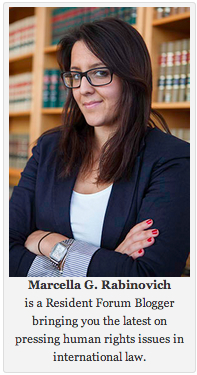 While many are sitting at home preparing themselves and their schedules for some much anticipated Winter Olympics viewing, activists and countless others in opposition of Russia’s anti-LGBT laws are making their own preparations. Russia’s recent anti-LGBT legislation stigmatizes the gay community and bans the distribution of information about homosexuality to children. The bill essentially forbids propaganda of nontraditional (such as non-heterosexual) relationships. With the Winter Olympics just around the corner, I, among many, am concerned as to how these new laws will affect the athletes and attendees of the Olympics.
While many are sitting at home preparing themselves and their schedules for some much anticipated Winter Olympics viewing, activists and countless others in opposition of Russia’s anti-LGBT laws are making their own preparations. Russia’s recent anti-LGBT legislation stigmatizes the gay community and bans the distribution of information about homosexuality to children. The bill essentially forbids propaganda of nontraditional (such as non-heterosexual) relationships. With the Winter Olympics just around the corner, I, among many, am concerned as to how these new laws will affect the athletes and attendees of the Olympics.
The International Olympic Committee (“IOC”), a Swiss non-profit, non-governmental organization charged with organizing the Olympic Games, has made it clear to those nations competing at Sochi that athletes will be permitted to speak out freely against Russia’s anti-LGBT laws, as long as they do so away from accredited areas.
The IOC has announced that, in an effort to control protests at Sochi, there will be “protest zones” (quite like the ones we saw in Beijing) where demonstrations will be permitted. But even with protest zones and permission for athletes to speak out, the IOC has reminded athletes that they are not permitted to protest or speak out against Russian laws in any accredited areas. The IOC has stated that “[i]t’s about finding a balance across three priorities: the requirement we comply with the Olympic charter; that we understand the laws of the country we’re visiting, even if we don’t agree with them; and recognizing that we believe an Olympic team should reflect the values of the country they represent.”
The Olympic Charter, adopted by the IOC, is the codification of the fundamental principles, rules, and by-laws of the Olympics. Just like other major sporting events, the Olympics are governed by a standard set of rules. Rule 50 of the Olympic Charter has been a major topic of discussion concerning the effects of Russia’s anti-LGBT laws on the upcoming Winter Olympics. The rule states, “No kind of demonstration or political, religious, or racial propaganda is permitted in any Olympic sites, venues, or other areas.”
What is the significance of this rule? If an athlete, right before she competes, walks out into the arena and holds up a flag or sign supporting gay rights, she is in violation of Rule 50. The ultimate penalty, according to the Charter, of a Rule 50 violation is “disqualification or withdrawal of the accreditation of the person concerned.” The Charter states that the IOC will take action against athletes whose actions violate Rule 50, but the committee has specified/explained that the rule would be “interpreted and applied sensibly and proportionately.” IOC President, Thomas Bach, has further said that the punishment will be determined on a case-by-case basis. Thus, the IOC seems focused not only on applying the Charter’s rules, but also on applying them in a just manner.
Russian president Vladimir Putin has stated that all are welcome to participate in the Winter Olympics; he stated, “We aren’t banning anything, we aren’t rounding up anyone, we have no criminal punishment for such relations . . . One can feel relaxed and at ease, but please leave the children in peace.” Initially, Putin issued a presidential decree that sought to ban all rallies in Sochi from January 7 until March 21. He later rescinded the ban, however, allowing demonstrations to take place in certain locations to be determined by the Interior Ministry.
Russia has focused on making Sochi a safe environment – recent bombings in Volgograd, 600 miles from Sochi, have heightened security concerns. The Interior Ministry has stated that it plans to strictly enforce Russia’s new law and also impose restrictions on protests, such as allowing protests to take place in only a small area. With Russia’s government heightening security, restricting protests, and trying to maintain a somewhat non-discriminatory atmosphere, the Winter Olympic games are not going to be the only interesting event at Sochi. Taking into account the vast number of demonstrators preparing to protest in Sochi, how the Russian government and the IOC work together in response to these individuals may be a historical event in itself.
Posted Feb. 6, 2014